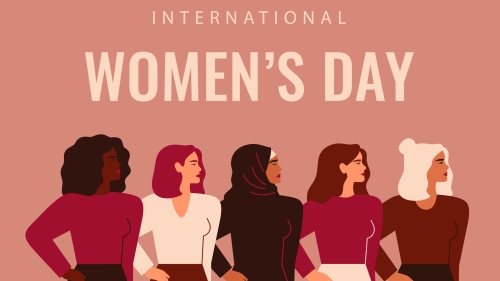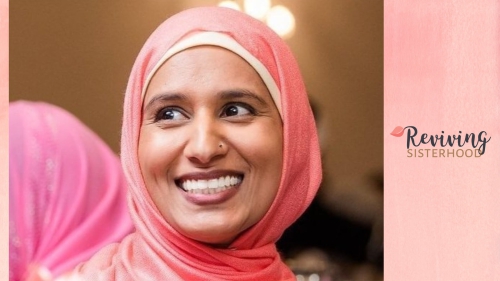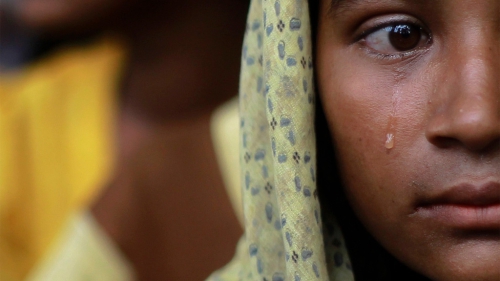Uneasy Time Requires Smart Thinking

There is no doubt that the rise of Daesh, which claims to be the new vanguard of the global jihadist movement, and the establishment of its caliphate in Syria and Iraq in the summer of 2014 represents a turning point in the evolution of global terrorism.
No time in recent history before has there been an outfit that has been so successful to confuse so many in such a short time. Daesh claims to be Islamic and a caliphate under its leader Abu Bakr al-Baghdadi. Its flag even has the Islamic emblem – the testimony of faith. Thanks to the internet and its smart propagators, Daesh has been able to relay its messages throughout the world and gravitate many to its causes! Thousands flocked to its causes, some even joining the so-called caliphate from Europe, let alone from its neighboring countries with significant Muslim population. The imperative for the migration, or hijrah, to the caliphate was provided by al-Baghdadi’s proclamation in 2014 in which he reportedly said that ‘there is no life without jihad and there is no jihad without hijrah’ and moreover that ‘this life of jihad is not possible until you pack and move to the Khilafah [caliphate]’.
Baghdadi’s was an unprecedented call in this century. Thanks also to the quick wins in the battlefields in Iraq and Syria in its early years, Daesh could attract thousands of young people –male and female, hailing from many countries – to make the journey to join its ranks and take part in the consolidation and expansion of a project with global scope!
The call had an extraordinary impact on Western Europe: we are told that of the nearly 30,000 foreign fighters (FFs) that have travelled to the Middle East to join various organizations active in the region, including the Daesh, some 5,000 hail from Western European countries. No previous mobilization, whether linked to the Soviet invasion of Afghanistan in the 1980s, or the genocidal campaigns against the Bosnian Muslims (by Christian Orthodox Serbians) and against the Chechen Muslims by the Russians in Chechnya in the 1990s, or the western war in Iraq in the 2000s, had had such a wide repercussion among young European Muslims. Of these FFs, some 10%, nearly 550, are women.
Elcano Royal Institute, established under the honorary presidency of the Prince of Asturias on 2 December 2001 as a forum for analysis and debate on international affairs and particularly on Spain’s international relations, has recently completed an analysis that looks at the women who are recruited to join DAESH in Spain: who they are, how they were radicalized and what their motivations and functions are within the groups, cells and networks in which they ultimately become involved.
Terrorist groups (e.g., Tamil Tigers) have historically recruited women for a plethora of reasons. The use of women in operational activities of a suicidal nature has proved to be a win-win strategy for the organizations, providing they are not arrested before achieving their goals: first it has been calculated that they are capable of causing up to four times as many victims as their male counterparts, given their greater ability to pass undetected, and secondly they attract much greater media coverage, owing both to their novelty (men are traditionally over-represented in terrorist organizations), and to the shock that is still felt upon seeing a woman commit violent acts, when they have traditionally and culturally been associated with peaceful values.
In the Spanish case, per the latest official figures, of the 208 individuals with Spanish nationality and/or residence in Spain that have decided to travel to the ‘caliphate’ since 2013, some 10% (21) are female. Additionally, another 23 women have been arrested and arraigned before the Audiencia Nacional within Spanish territory for their involvement in activities linked to Daesh. The average age of the women covered by this study is 24, seven years less than the average age of the men arrested for the same crimes: 31.3 years at the time of their arrest. Almost three quarters of the women (73.3%) were aged between 19 and 28 when arrested. Less than a half, some 45%, are women who were single at the time of their arrest.
As to the nationality of the women arrested in Spain for connections to Daesh, in more than six out of every 10 cases (60.9%) they were Spanish – more than half, 56.5%, were born in Spanish national territory. Of women with Spanish nationality, 65.2% were resident in Spain and the offspring of immigrants, born essentially in the autonomous cities of Melilla (36.2%) and Ceuta (27.4%). Another notable feature of the female contingent is that 13% are converts, lacking any manner of Muslim family, cultural or religious background, but who decided at a certain moment to adopt this faith as their own. It is a percentage similar to that observed among the men (11.1%).
The Elcano analysis also shows that the women arrested in Spain were better educated than their male counterparts: none of the arrested women were illiterate or lacking any type of compulsory education, which is however the case with 8.8% of the male detainees. 87.5% of the women –compared with 25.7% of the men – had obtained secondary education, and 6.3% had completed higher education. In fact, according to the available data, 26.7% of the women were students at the time of their arrest, as opposed to 4.8% of the men, although this variable could be affected by the fact that the women are generally younger than the men. Another striking feature of the arrested women is the number who were unemployed, 33.3% of the total, 10 percentage points greater than the figure for unemployed men. In both cases, those in work were predominantly employed in the services sector.
Lastly, the Elcano analysis also point out that at the time of their arrest for activities related to Daesh none of the women had criminal records, whether for crimes related to terrorism or for ordinary infractions, something that by contrast is distinctly common among men, not only in Spain but elsewhere in Western Europe.
As the above statistics show, what Spain faced is a home-grown phenomenon. Many of the women who were radicalized or inclined to join Daesh were influenced by what they saw and read in the Internet. Some 61.5% women were inclined to join Daesh for reasons of an emotional or affective nature, including the promise of getting married to a fighter in the field, with whom they typically fell in love over the internet, or whose partner persuaded the women to become involved with them. Their intention was not so much to wage ‘jihad at home’ as to travel to the territory occupied by Daesh to join the project of the ‘caliphate’ under construction, but without getting involved in fighting. This also emerges from the fact that none of the women performed functions of an operational nature, nor had they been trained physically or in the use of weapons or explosives. In the case of the men, willingness to become involved as FFs predominated.
Other functions performed by the women arrested in Spain include recruiting and radicalizing other women (accounting for 45.5%) and spreading propaganda over social media and the internet (22.7%).
The women who have been arrested and arraigned before the Audiencia Nacional for their radical activities tend to be young and free of family responsibilities. While none of the young women was illiterate, the majority had only managed to complete secondary education and were indeed occupied as students –with various degrees of success– at the time of their arrest. A third of them were unemployed. None of the women had criminal records for terrorist crimes or any other sort of infraction, and therefore at the time of embarking upon investigations they were unknown to the police and judicial authorities.
In the Spanish case the involvement of women in Daesh is mainly related to the promise of a life in the ‘caliphate’, of an FF whom they hope to marry, or to the frustration of not being able to lead a life in keeping with their expectations in their place of residence. It is, however, a complex process in which other factors of various kinds play a part.
The Elcano analysis, like many other western analyses, however, fail to recommend prudent countermeasures or solutions required to tackle the home-grown nature of radicalization of its people. What should the western governments and societies do to save its young men/women from embracing toxic ideologies of nihilistic groups like the Daesh (or the so-called ISIS)? Even if they succeed in stopping the migration of the radicalized youth to Deash-held territories can they stop them from the process of self-radicalization or committing nihilistic acts inside the respective country where they live?
It is the economics, stupid, that often dictates how things end up. If these radicalized Muslims, converted or born, were employed and felt integrated in western Europe, in my opinion their embrace of nihilistic ideology would have disappeared very significantly. And yet, in places like France, even a 3rd generation French-born Muslim of North African descent often cannot find a decent job. [Discrimination against the people of north-African heritage is so high that it is simply mind-boggling for a country that gave the western notion of equality, liberty and fraternity! That is the rotting, ugly reality in Le Pen's France! The French society, rather than integrating children and grand-children of those African immigrants, has created ghettos for them where they feel abandoned or ignored. The feeling of abandonment has led some to find alternative meanings of their very existence, sometimes embracing suicidal and anarchist ways.]
Instead of improving their social and economic conditions these western governments have spent money on policing and spying or embedding snitches for these ‘racial others’. Since 9/11 they have created a troop of informants (mostly from immigrants who had prior problems with the law) to spy upon and harass mostly the law-abiding decent Muslims who pray in the mosques. As studies after studies have shown most of the radicalized Muslims had little or no connection with mosques; they were self-radicalized via internet. All those government programs and money were ill-spent while danger came from others that were not in the radar screen.
A major problem with the Internet is that it is almost impossible to keep it inaccessible in a free society, esp. in this age of information superhighways. However, its deadly effect can be curtailed somewhat through good education and trust-building measures within a society where everyone feels valued despite being different racially or religiously. Failing on this major task would leave anyone who feels dissatisfied and angry, esp. a naïve or ill-educated/informed person, vulnerable to the toxic messages of the extremists – be they the far right, far left, secular, religious or fascists. The latter are promising many of the things that are denied to these confused youths or adults who see a glorious end to their otherwise worthless life.
Unless such serious issues are tackled with meaningful solutions we may never see the end of nihilistic attacks in the West. That is the billion, or who knows trillion, dollar question that our politicians need to answer.
As I have noted many times, the extremists and fascists need each other. The fascist leaders in many western societies, the likes of Le Pen, like to keep the current paradigm thriving for their selfish political gains, which allow them to recruit white supremacists and bigots to their flawed cause of dividing our world – ‘us’ against ‘them’. They are unwilling to smell the coffee and wake up to the fast-changing reality of the world that we live in today that is much different than the world their parents and grandparents grew up with. They fail to realize that our world has become a global village now and will continue to be so for a foreseeable future where political boundaries will not be able to define what or who we are.
Successful polities will be those who would understand this reality and be willing to embrace diversity as a source of strength by integrating all and giving them opportunities to better themselves and thereby the very society that they adopted or are willing to adopt. That means integration and not imposed assimilation, and surely not alienation. Something to ponder about!

















